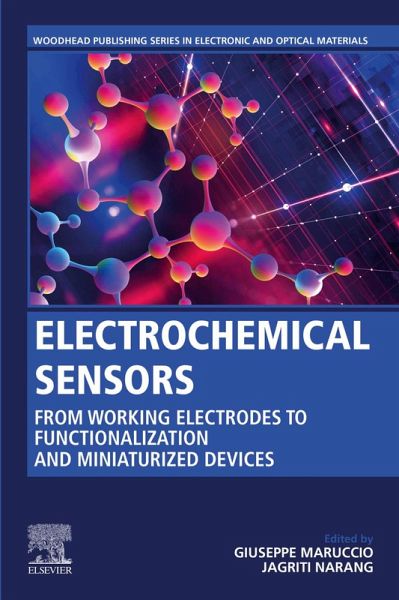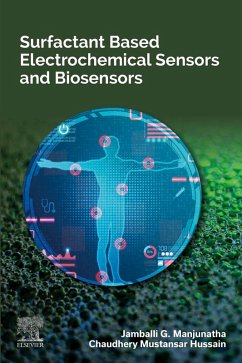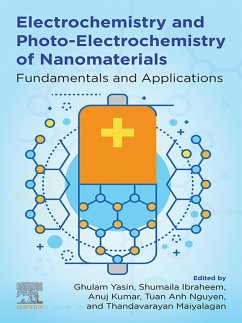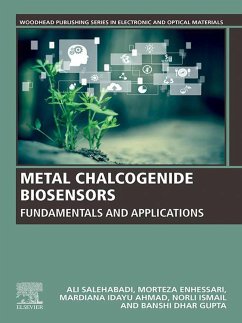
Electrochemical Sensors (eBook, ePUB)
From Working Electrodes to Functionalization and Miniaturized Devices
Redaktion: Maruccio, Giuseppe; Narang, Jagriti
Versandkostenfrei!
Sofort per Download lieferbar
127,95 €
inkl. MwSt.
Weitere Ausgaben:

PAYBACK Punkte
64 °P sammeln!
Electrochemical Sensors: From Working Electrodes to Functionalization and Miniaturized Devices provides an overview of the materials, preparation and fabrication methods for biosensor applications. The book introduces the field of electrochemistry and its fundamentals, also providing a practical overview of working electrodes as key components for the implementation of sensors and assays. Features covered include the prompt transfer of electrons, favorable redox behavior, biocompatibility, and inertness in terms of electrode fouling. Special attention is dedicated to analyzing the various work...
Electrochemical Sensors: From Working Electrodes to Functionalization and Miniaturized Devices provides an overview of the materials, preparation and fabrication methods for biosensor applications. The book introduces the field of electrochemistry and its fundamentals, also providing a practical overview of working electrodes as key components for the implementation of sensors and assays. Features covered include the prompt transfer of electrons, favorable redox behavior, biocompatibility, and inertness in terms of electrode fouling. Special attention is dedicated to analyzing the various working materials systems for electrodes used in electrochemical cells such as gold, carbon, copper, platinum and metal oxides. This book is suitable for academics and practitioners working in the disciplines of materials science and engineering, analytical chemistry and biomedical engineering. - Introduces key concepts for electrochemistry and biosensors - Reviews the most common and emerging materials-based electrodes for sensor applications, including gold, carbon, platinum and metal oxides - Discusses both macro and miniaturized electrodes, including their cleaning, engineering, fabrication, examples of working biosensors, and advantages and disadvantages
Dieser Download kann aus rechtlichen Gründen nur mit Rechnungsadresse in A, B, BG, CY, CZ, D, DK, EW, E, FIN, F, GR, HR, H, IRL, I, LT, L, LR, M, NL, PL, P, R, S, SLO, SK ausgeliefert werden.












